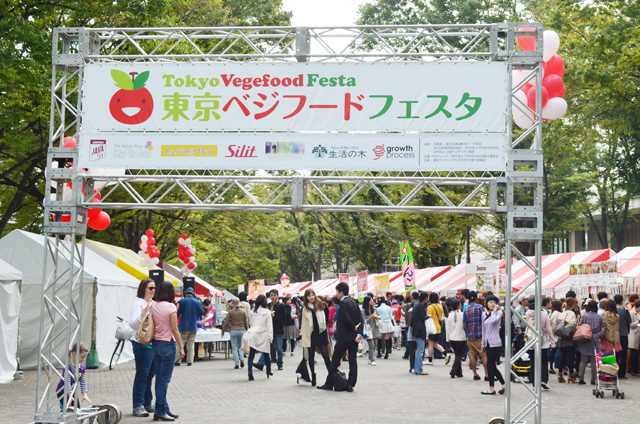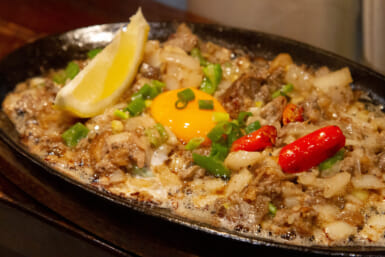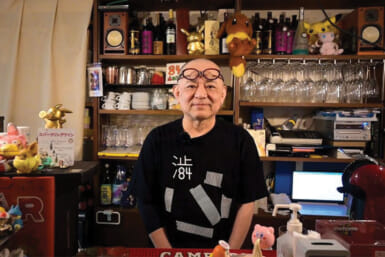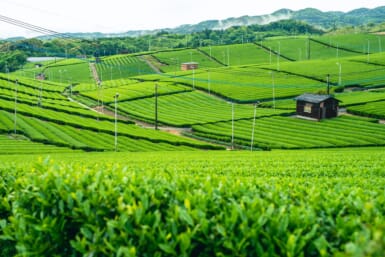But this weekend’s Tokyo Vegefood Festa does make it a bit easier.
By Sarah Custen
In the west, Japanese food is portrayed as very healthy—all rice and fish and vegetables. But the unhealthy influences of western culture and modern life on Japanese diet and lifestyle are plain to see, even in a major city like Tokyo. Although the Japanese diet has been traditionally plant-based, supermarkets and combinis are filled with meat, dairy, and processed convenience foods. If you’re looking for healthy, well-balanced meals, it can be difficult.
And if you’re a vegetarian or vegan? “Very difficult,” says Natsuko Takahashi, vegan and plant-based activist, and one of the organizers of this year’s Tokyo Vegefood Festa. Her husband, Koji, is festival director.
Tokyo Vegefood Festa, now in its eleventh year, serves 100% plant based food and aims to appeal not only to vegans and vegetarians, but to anyone eager to incorporate more sustainable and healthy habits into their lifestyle.
This year’s theme centers on the experience and enjoyment of veggie food. Takahashi hopes that attendees will “discover how delicious vegan food can be.” She adds that by introducing information about the vegan or vegetarian diet, even meat and dairy eaters can “find themselves healthier than ever [and] gain a sense of satisfaction, knowing they are doing something better for the environment and food-supply crisis.”
Indeed, festivalgoers can educate themselves about medical/health, environmental and animal rights issues, while enjoying tasty veggie treats and fun activities for all ages. In addition to about 100 food stalls serving vegan food from popular local restaurants and cafés, there will be a “Table for All” stage with various speakers from the food industry, organic farms, and macrobiotic schools, as well as student organizations looking to make changes in their school cafeterias and Japanese society at large.
More than anything, Takahashi views embracing a plant-based diet as a way for Japanese people to return to their origins. Meat- and dairy-based meals came out of post-WWII school lunch programs, which were supervised by the U.S. and other countries and “pretty much westernized Japanese children’s taste,” she says. She adds that globalization and a growing post-war economy helped fuel an idealized image of western culture. “For most Japanese, who were very poor after WWII, anything coming from the western world appeared very attractive and better, including McDonald’s and Starbucks,” she says. “That tendency still continues today.”
Ironically, those same western influences are also the source of vegetarian and vegan dietary trends, which some Japanese think of as fashionable, says Takahashi. Still, she maintains, the Japanese food industry and foreign companies importing meat and dairy put pressure on the government and media in Japan.
But Takahashi remains optimistic. “I think there are possibilities for vegan culture to grow in Japanese society. In fact, during the last decade, vegan culture grew substantially from almost nothing. It is still a small margin, yet there are so many more vegetarian restaurants/cafes than there were a decade ago.”
Come see for yourself, and get a (literal) taste of vegan culture this weekend in Yoyogi Park at Tokyo Vegefood Festa 2013.









